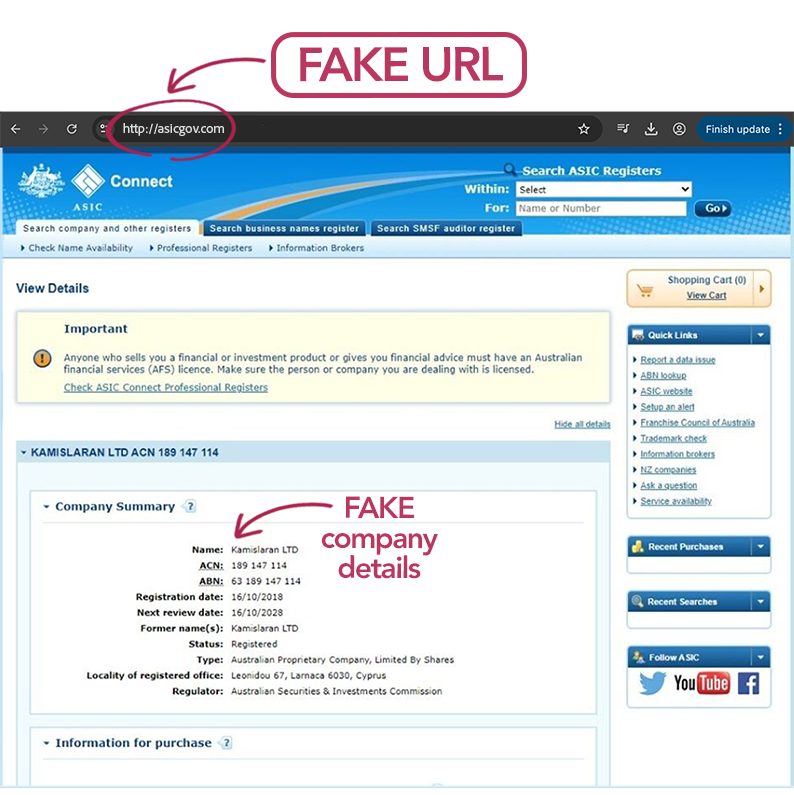

This raises red flags across the financial and insurance sectors amid escalating digital threats.
ASIC reported that several unauthorised sites have emerged, using web addresses similar to its legitimate portals – asicconnect.asic.gov.au and connectonline.asic.gov.au – in attempts to deceive users into submitting confidential information.
These sites often include fake company details or links to actual ASIC content to appear authentic.

The regulator advised users to carefully check URLs before interacting with its online systems, particularly when entering personal data. It has also encouraged individuals to report suspicious web activity through its official online inquiry system.
For the insurance industry, the growing frequency and sophistication of such impersonation scams highlight the importance of cyber risk assessment and client education.
Recent figures from the Australian Competition and Consumer Commission’s (ACCC) Scamwatch program showed that email is now the primary channel used by scammers.
In 2024, email-related scam reports totalled approximately 91,000. By February 2025, another 18,000 complaints had already been logged.
From 2020 onwards, Australians have reported nearly $300 million in scam-related financial losses linked to email interactions. Scamwatch data showed men accounted for a majority of these losses, with those aged 65 and older especially affected. Investment scams represented the largest share of reported losses, followed by fraudulent billing, online marketplace deception, romance schemes, and bogus e-commerce offers.
Broader cybersecurity trends further illustrate the sector’s exposure. According to Bitdefender, Australia ranked sixth globally for ransomware activity in February 2025, with 962 incidents reported that month – more than double the count from the previous year.
Surfshark’s data showed that 47 million Australian accounts were compromised in 2024 alone, with more than 49 million unique email addresses affected over time.
In response to scam activities in Australia, the federal government has granted the Australian Financial Complaints Authority (AFCA) expanded authority to investigate the actions of recipient banks in fraudulent transactions.
This change, effective within 12 months, will enable AFCA to determine whether receiving institutions took adequate steps to intercept scams.
Assistant Treasurer Stephen Jones said the expansion of AFCA’s role is part of broader efforts to bolster consumer protection in digital financial services.
